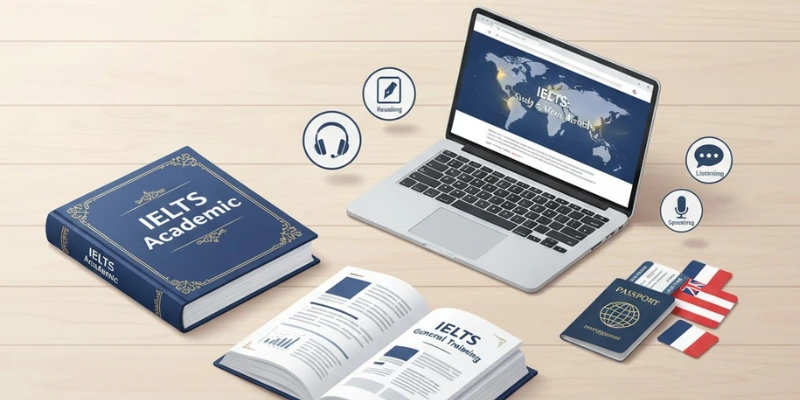
An IELTS exam plays a crucial role for those dreaming of studying, working, or migrating abroad. It tests more than language; it measures communication readiness in real-world situations. For aspirants aiming to improve fluency, comprehension, and confidence, enrolling in IELTS Coaching in Trichy can provide structured guidance and practical exposure, helping them perform well in every module and approach their global goals with clarity.
Understanding the Purpose of the IELTS Exam
An International English Language Testing System is designed to evaluate how well the person can communicate in English in an academic or professional environment. It’s widely accepted by universities, employers, and governments around the world. Understanding the exam’s purpose helps candidates choose the right type and prepare strategically.
The Two Main Types of IELTS Exams
There are two primary IELTS exam types: Academic and General Training. An IELTS Academic test is meant for those seeking admission to international universities or professional registration, while the IELTS General Training exam is ideal for individuals migrating or working abroad. Each version assesses reading, writing, listening, and speaking, but the test content varies slightly to match the candidate’s goals.
The Academic Test: For Higher Education Goals
The Academic test focuses on evaluating language skills necessary for university-level learning. It includes passages, essays, and listening exercises modeled after academic settings. For students aiming to study overseas, mastering the structure and vocabulary used in the Academic test is essential to meet university requirements and excel in academic discussions.
The General Training Test: For Migration and Employment
The General Training version focuses on practical, everyday English used in social and professional contexts. It’s often chosen by individuals seeking permanent residency or work abroad. Topics revolve around general communication, making it slightly simpler in reading and writing sections compared to the academic test, but equally important in measuring language efficiency.
The Computer-Based and Paper-Based Options
IELTS offers both computer-delivered and paper-based versions to suit different preferences. While the test format and scoring remain the same, the computer-based test provides faster results and more flexible scheduling. Candidates can choose whichever suits their comfort level, ensuring a smooth test experience. Building adaptability through structured practice, such as with Spoken English Classes in Trichy, can enhance confidence in either format.
Key Modules: A Closer Look at Each Section
The IELTS exam has four modules: Listening, Reading, Writing, and Speaking. Each section measures specific communication abilities. Listening tests focus on comprehension, Reading examines understanding and analysis, Writing assesses coherence and vocabulary, and Speaking evaluates fluency and pronunciation. Consistent practice across all four areas ensures a balanced and strong performance.
Choosing the Right Type of IELTS Test
Choosing between Academic and General Training depends on the candidate’s goals. If you plan to pursue higher education, Academic IELTS is the right choice. However, if your aim is to work, migrate, or settle abroad, General Training suits you better. Understanding this distinction early helps in focused preparation and better time management during practice.
How Scoring Works in IELTS
IELTS scores are measured on 9-band scale, reflecting varying levels of proficiency from non-user to expert. Each module contributes equally to the final band score. Candidates aiming for university admission or specific job requirements should target a particular score range. Learning effective strategies through IELTS Coaching in Erode can help achieve higher scores by focusing on weak areas and developing test-taking confidence.
The Growing Demand for IELTS Certification
IELTS is accepted in over 140 countries, making it one of the most recognized English proficiency tests worldwide. Whether it’s for global education, professional growth, or permanent residency, IELTS opens multiple pathways. The certification not only validates language ability but also strengthens an individual’s global communication skills and career prospects.
Practical Preparation Tips for Test Success
Preparation for IELTS requires consistency, practice, and familiarity with the test format. Listening to English podcasts, reading daily, and practicing essay writing are effective ways to improve. Speaking regularly in English helps overcome hesitation. Combining these practices with professional coaching ensures structured progress and a deeper understanding of test expectations.
The Connection Between Language Confidence and Career Growth
Language fluency doesn’t just help in exams it impacts interviews, professional interactions, and daily communication. Those who express themselves confidently in English stand out in global workplaces. Continuous improvement through Spoken English Classes Erode, enhances both linguistic and interpersonal skills, preparing individuals for success in any international environment.
Also Check: Importance of Spoken English in today’s World
